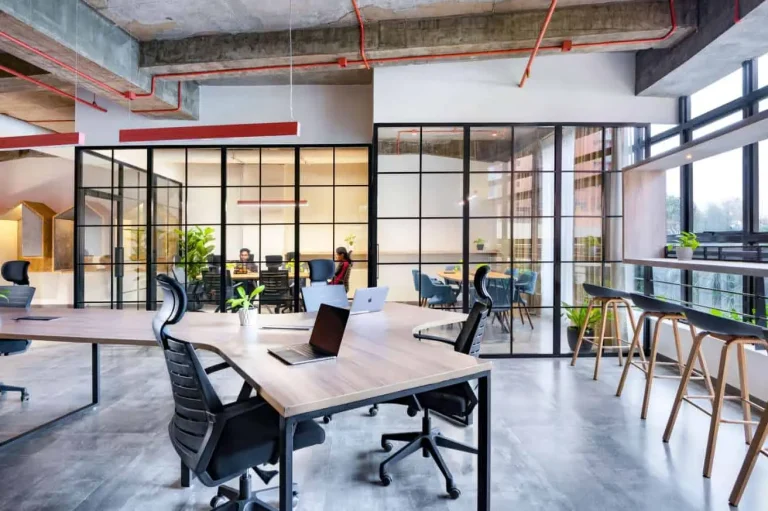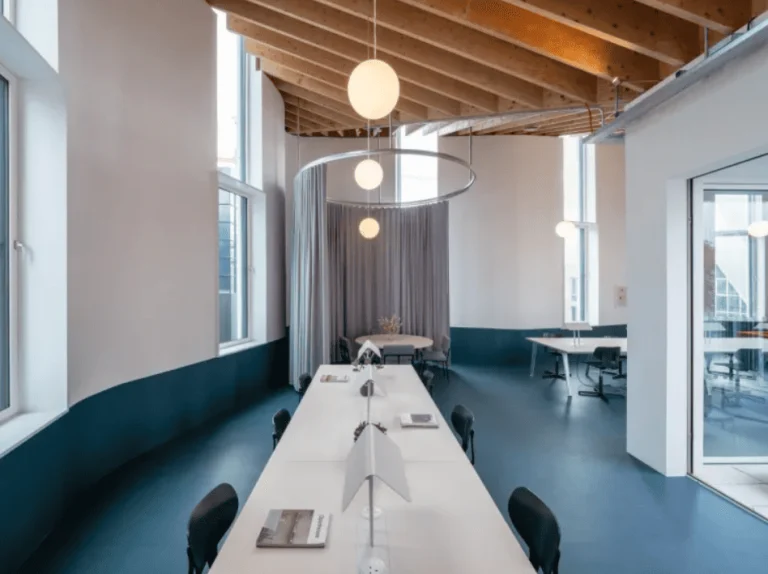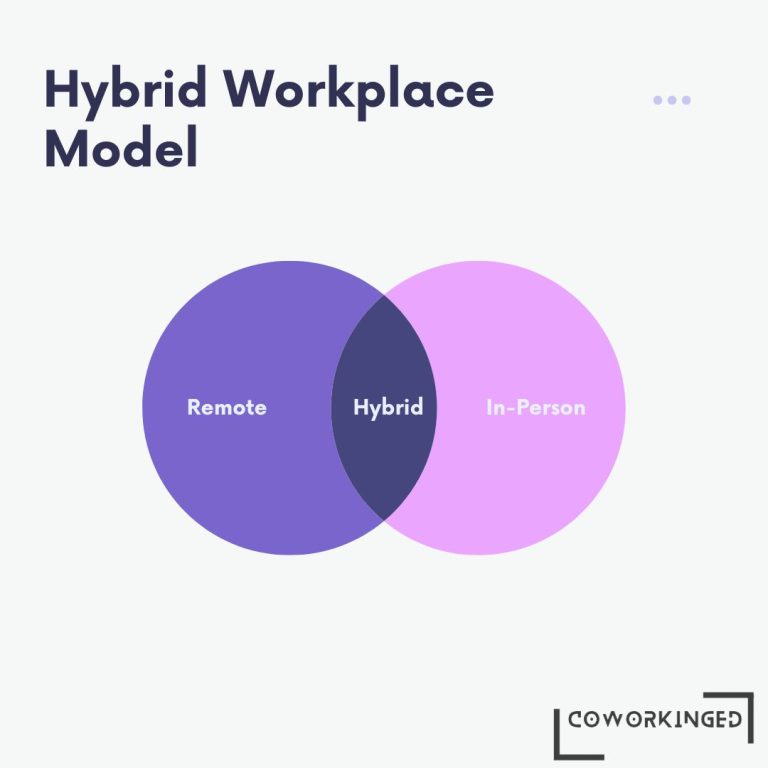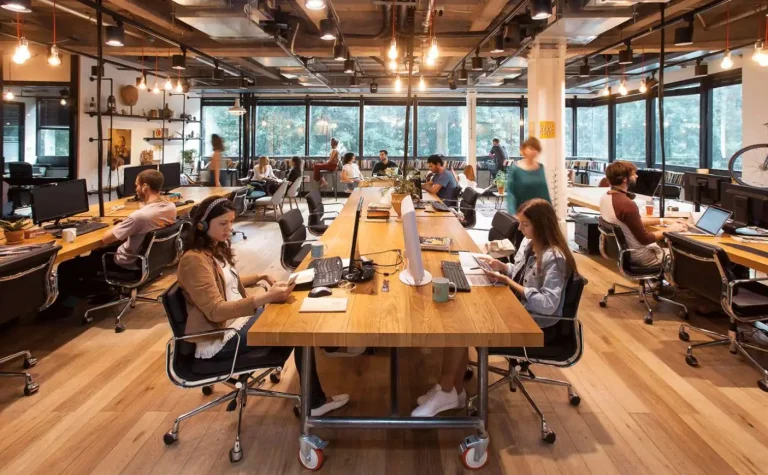What is Space Management?
The rise of hybrid work setups has sparked a fresh perspective on how offices are utilized. While space management has long held significance, the advent of hybrid work models and collaborative coworking spaces has elevated its importance to a pivotal aspect of business operations.
In this article, we’re going to talk about space management and how it helps businesses. But first, let’s explain what space management means.
What is space management?
Space management is like making your office space work its best to help your employees be super productive. It’s not just about having a comfy office, but also about creating different areas for different types of work.
This way, you can have hybrid spaces that support various tasks, like meetings or focused work. It’s also important to make sure places like dining areas and break rooms are safe, well-equipped, and pleasant to use. This all adds up to a happier and more productive workplace.
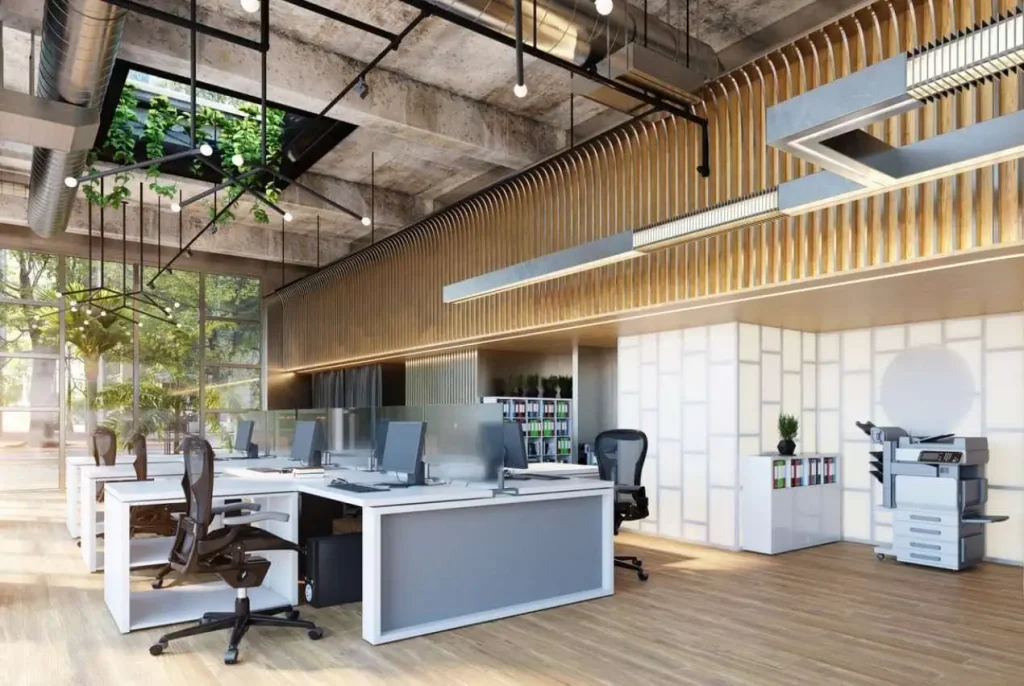
Space Management Fundamentals
Embrace Flexibility
Make your office space versatile to accommodate various work styles and tasks. Offer flexible seating choices, utilize desk booking tools, and create dedicated areas for brainstorming, teamwork, and focused work.
Prioritize Employee Experience
Carefully consider how your employees interact with the physical workspace. Think about aspects such as entry and exit points, as well as conveniences like lockers and showers that enhance their daily experience.
Leverage Technology
Harness the power of technology to simplify tasks. Use tech solutions for easy room bookings and desk reservations. Additionally, employ technology to track office occupancy, identifying areas that need attention or repurposing to improve overall efficiency.
Importance of Space Management in Office
Every company, regardless of its size, engages in some form of space management. Whether it’s reserving a coworking spot for a day or orchestrating the layout of vast offices across multiple buildings, space management is at the core of a company’s operations.
Space management is crucial because it enables businesses to make the most of their resources and get the most out of their physical space. This can result in cost savings while simultaneously enhancing workplace safety and employee productivity. By ensuring that employees have the right spaces and tools they need to perform their tasks efficiently, space management contributes to a more effective and efficient work environment.
Advantages of Optimizing Space Management
Optimizing your office space brings both immediate and long-term benefits. Here are a few examples:
Enhanced Flexibility
Optimizing your office space offers a range of advantages tailored to your business needs. Here are a few different scenarios to illustrate its benefits:
Dynamic Adaptability
Imagine your company suddenly needs more meeting spaces for a project kickoff. Efficient space management allows you to quickly reconfigure areas to meet these demands without last-minute hassles or disruptions.
Happy and Engaged Employees
Picture employees walking into an office with well-designed spaces that encourage collaboration, focus, and relaxation. When they find the right tools and environments for their tasks, they feel motivated and perform at their best, fostering a culture where employees choose the office over remote work.
Financial Efficiency
Consider the situation where your company leases a large office, but many employees work remotely. By optimizing space usage, you can transition to a more cost-effective model, minimizing expenses associated with unused or poorly utilized areas, resulting in substantial savings.
Tools and Technology for Effective Space Management
To maximize the utility of your office space, you’ll need the right tools and technology at your disposal. These tools provide complete visibility and control over space utilization, empowering you to make informed decisions about resource allocation. Here are some widely used tools:
Space Management Software
This software is designed to oversee office layouts and keep tabs on assets like furniture, equipment, workshops, and parking spaces for bicycles and cars. It also aids in planning and executing office relocations.
Desk and Room Sensors
These smart sensors monitor the number of people present in specific rooms or areas of the office. They generate data-driven insights that inform space usage decisions. When used ethically, without tracking individual employees or collecting personal data, they become valuable tools for space management.
Desk and Room Booking Systems
These systems empower employees to reserve desks, meeting rooms, and other spaces in advance. This ensures efficient office space utilization and prevents resource wastage, enhancing overall productivity.
Understanding Desk Space Management
Desk space management revolves around the thoughtful allocation of desks and workstations to employees based on their specific needs and roles. This entails providing employees with ergonomic chairs or standing desks to ensure their comfort while working and organizing space allocation to accommodate team or project requirements.
Real-Life Examples of Space Management
To illustrate the concept, consider how leading companies implement space management strategies:
- Google’s Innovative Desk Design:
Google has introduced inventive management of office space tools to optimize office efficiency. Notably, they have developed a prototype desk that automatically adjusts its height, monitor tilt, and local temperature based on the personal preferences of the employee who reserves it. - Microsoft’s Tech-Driven Optimization:
Microsoft leverages technology to enhance office space utilization. This involves using specialized software to assign desks and monitor occupancy levels. Additionally, they provide collaborative team spaces designed to meet the needs of both remote and in-person workers, showcasing a tech-savvy approach to space management.
These examples demonstrate how forward-thinking companies are using space management to create comfortable and efficient work environments tailored to the needs of their employees.
Frequently Asked Questions
1. Why is proper space management so important?
Proper management of space is crucial because it maximizes office efficiency, enhances employee productivity, and can result in cost savings. It ensures that office resources are used optimally and creates a comfortable and safe work environment.
2. Why is space management important for an office?
Space management is important for an office because it helps make the best use of available space, supports different work needs, enhances employee satisfaction, and contributes to cost efficiency.
3. What is space management in the workplace?
Management of space in the workplace refers to the strategic planning and organization of physical office space to optimize its functionality, efficiency, and usability. It involves tasks such as layout design, resource allocation, and the use of technology to create a productive and comfortable work environment.
Final Words
Space management is the key to unlocking productivity, cost-efficiency, and employee satisfaction in the modern workplace. By wisely utilizing technology and adaptable strategies, businesses can create dynamic, efficient, and future-ready office spaces. This strategic approach not only enhances today’s operations but also positions companies to thrive in the ever-evolving world of work.


